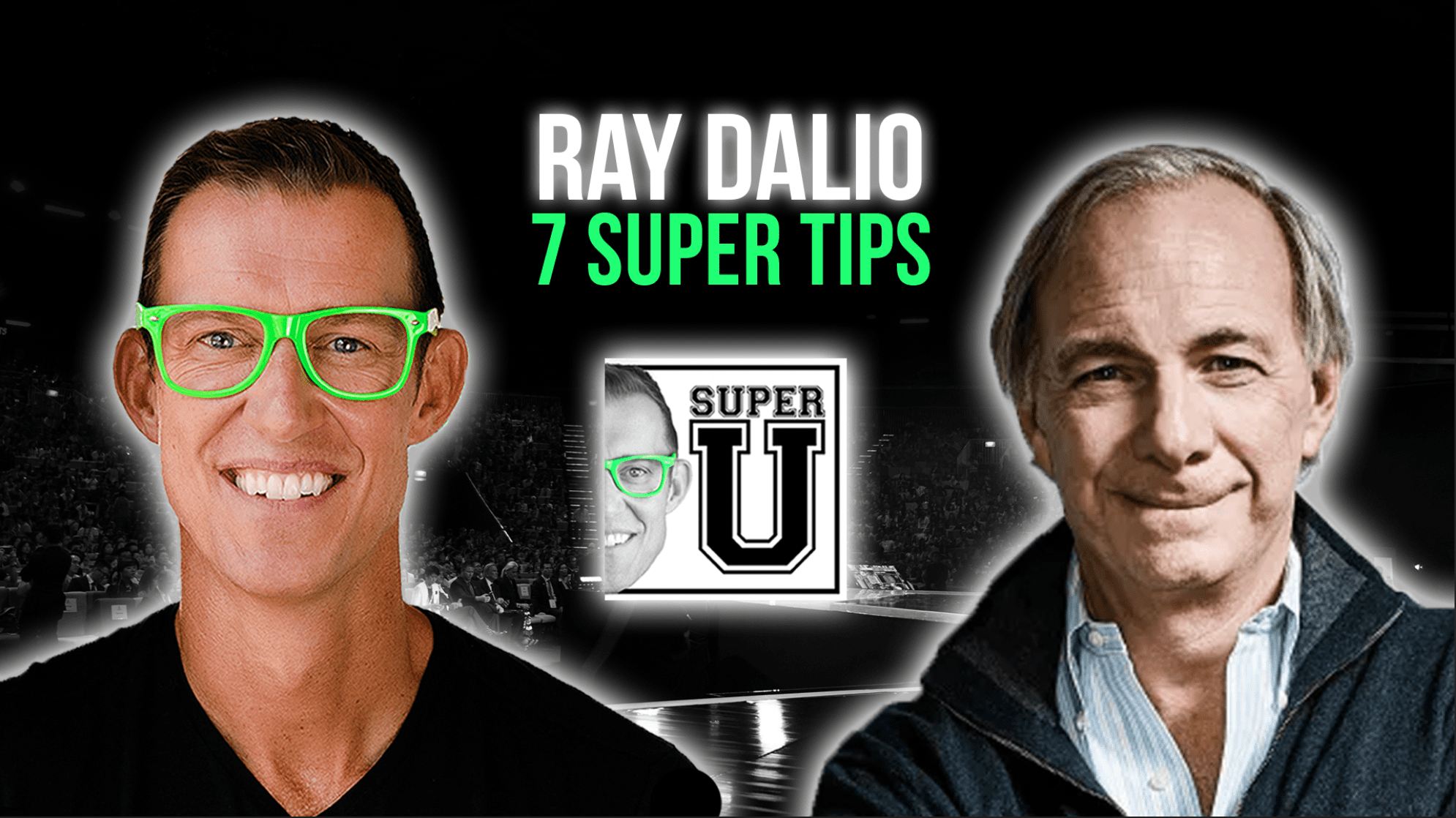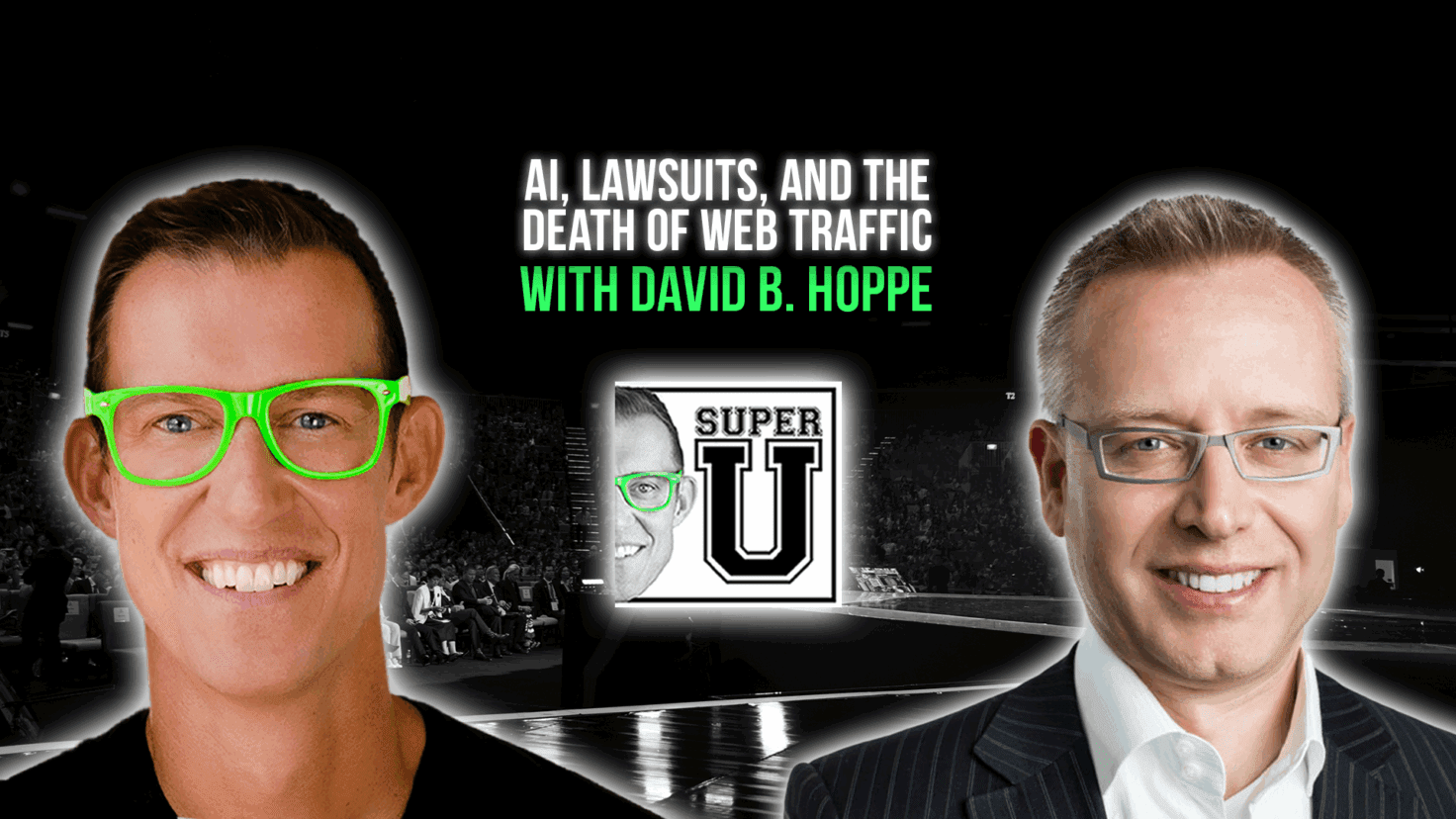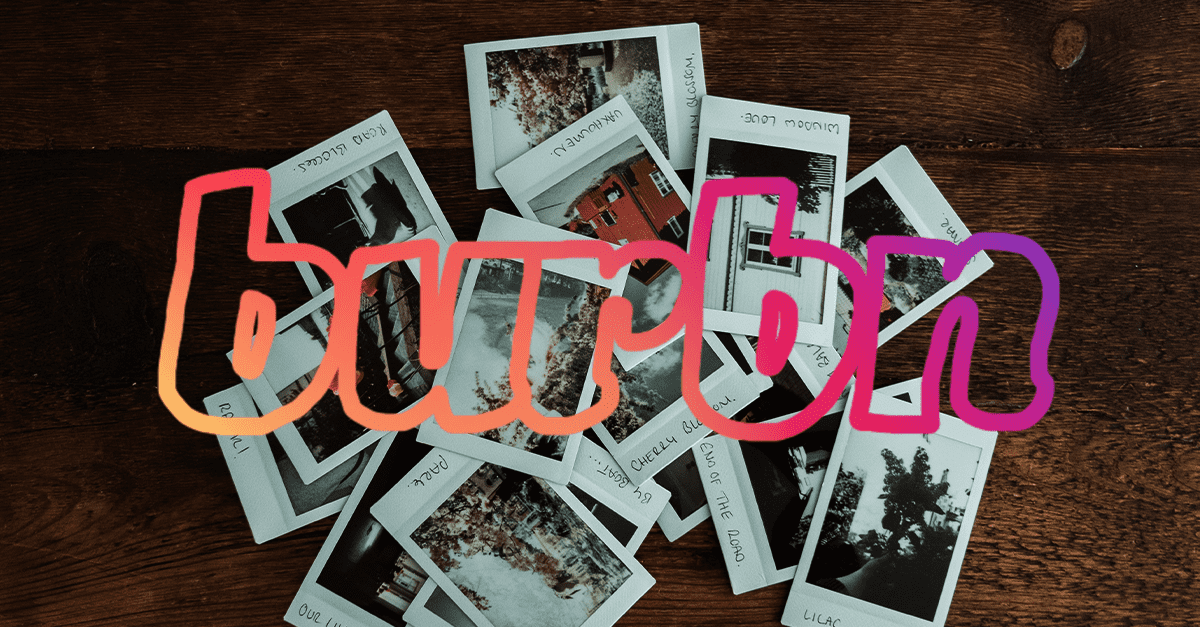Super U Podcast | 7 Super Tips with Ray Dalio
In today’s episode, Erik chats with Ray Dalio, the founder of Bridgewater Associates. Ray gives us insights on his framework, decision making approach, meritocracy, and truthful conversations.
Ray Dalio is an American billionaire investor and hedge fund manager, who has served as co-chief investment officer of the world’s largest hedge fund, Bridgewater Associates, since 1985. He founded Bridgewater in 1975 in New York. A $5 million investment from the World Bank’s retirement fund was made within five years. His innovations are regarded as some of the best in the industry, having popularized many commonly used practices, such as risk parity, currency overlay, portable alpha and global inflation-indexed bond management.
5x #1 Bestselling Author and Motivational Speaker Erik Qualman has performed in over 55 countries and reached over 50 million people this past decade. He was voted the 2nd Most Likable Author in the World behind Harry Potter’s J.K. Rowling. Qualman is also the inventor of the bestselling board game Kittycorn.
Need a sneak peek? Below are the main takeaways from the episode.
Super U Podcast | 7 Super Tips with Ray Dalio
Tip #1
“Everything happens over and over again. Now, everything we think of that says everything’s another one of those. So, by being able to look at history and make the connections and examine how the mechanics of the cause-effect relationships, that’s what we spent a lot of time doing. And then we convert those rules and those principles into algorithms. So throughout the day, I’m doing that mostly and reflecting on mostly on the markets with interesting people and we debate a lot. So and that’ll carry through the day.
Well, I don’t let them randomly throw that information. You know, I, I’m very stepping back, much more like to go to kind of what I might describe as a higher level there’s, there’s the blizzard that everybody’s normally in. And that’s where they’re caught with all these things coming at them. And I prefer to go above the blizzard and just organize. So I’m, it’s organized that way. I also should say that I meditate. So I started my day when you gave me the question. As I started my business day, I should say I also find that meditation has been fantastic and I do that regularly. So I want to always maintain equanimity. Not get caught in the busy Blizzard to try to be more strategic and so I don’t I manage that.”
Tip #2
“So from 1975 until 1982, is the period, can you imagine this was seven years of building a business, making a lot of good and bad decisions, but many more good ones and bad ones and built up my little business. And then in 1982, I calculated that a number of countries would not be able to pay back their debts to American banks, and the American banks had 250% of their capital out to them and loans so they were going to go bankrupt. And this was a very controversial point of view. I mean, people, I thought, we’re gonna have an economic collapse, and because the banks wouldn’t collapse. And then what happened is, lo and behold, on August 1982, Mexico defaults on its debts. And people started to see this. And that led me to get a lot of attention. So it was put on Wall Street week, I was asked to testify to Congress to help them understand this debt crisis, and so on, and so forth. And I thought we were going into a depression. And this was the worst economy ever. And it turned out, if you look at the exact bottom in the stock market, August 1982, when Mexico defaulted, that was the exact bottom in the stock market. And that’s because then the Federal Reserve printed money, and then he’s interest rates, and so on and so forth. But that was totally wrong. So I lost clients that cost me money. And I had to let everybody, who worked with me go and we were a very tight group of people. So it was like losing extended family. I was so broke that I had to borrow $4,000 from my dad, and I had to make a choice. Am I going to go to work for somebody else? Or am I going to work through this? And this? So it was a terrible experience. But it turned out to be maybe the most valuable experience or one of the most valuable experiences in my life because it changed my approach to decision-making. I went from thinking, you know, I’m right, to asking myself, How do I know I’m right? In other words, how do I triangulate, it gave me the humility I needed to balance with my Audacity. And so then it gave me an open-mindedness and from that point forward, everything was better we can get into but what changed? That raised my probability of being right and managed and allowed me to manage risk. So from that point forward, you know, everything became better really. Until today.”
Tip #3
“I got into an exercise that I’d recommend for everybody out there. Whenever you’re making a decision, that’s an important decision. You’re used to just making that decision and moving on, I developed an exercise where I would write down my criteria for making those decisions. So that would be my principle. So you had a decision journal, almost a decision journal about how Yes, a decision journal, right? And which are these written principles? Which are really what is in the book mostly? So one by one? How do I make that decision? What are the cause-effect relationships, so when another one of those comes along, I remember it, and I, you know, communicate it? And this has been invaluable to me also, in dealing with people, because we could deal with each other better, I can have those stress tested, it’s reasonable, you look at that. And you say, if this thing came along, would you do this? it the way I’m describing, would you operate by that principle, and you can have back and forth and refine the principles, then that leads one to think and a principled way rather than in the snowstorm that struck me this blizzard of everything that comes at people, instead, it’s like, you look at everything, and you see everything is another one of those. So like a duck or a species, right? Think, okay, what species is it? How do I deal with that species in the most effective way? And then I found out that I could put those into algorithms. In other words, starting 30 years ago, I was able to say if I have those criteria, and you know, we call them formulas, then now they’re algorithms, but we I would write down if this happened, then do this. And I would write that down. And then I learned how the computer could be a partner. And so it changed everything. Writing those principles down and then also putting them into an algorithm changed my relationships with people a chain allowed us to have an idea of meritocracy.”
Tip #4
“An idea meritocracy is when the best ideas win out. And the way that you have to have it, there are three steps that you have to do. First, you have to put your own honest thoughts out there. A lot of people have problems doing that. But you have to, you have to welcome others doing it, and you have to do it. So you have to put them on the table to look at them. Second, you have to have a thoughtful disagreement. In other words, the ability to take in and have a back-and-forth in a quality way. So that you can make better decisions than you could make individually. And we have protocols for doing that, that are described in the book. And then third, you have to have ways that if disagreements remain that you think are fair, appropriate, agreed upon ways of getting past that disagreement, because not everybody’s going to get what they want. And the problem that most people have at that point is that either there is an autocratic decision maker or a democratic decision maker, and neither of those works well, the autocratic decision maker is just the guy who’s the boss, who says, Okay, well, now I’m going to do this. That’s a problem because the others don’t own it. And how do you know that you’re right, you can’t be arrogant. And then there’s democratic decision-making. And that means everybody has the same votes, and the same opinion, that’s not sensible, because they have different merits to that. So if you have an idea, meritocracy, you have to know also the merit of people’s thinking. And so we go through the process of being able to identify unfair ways in ways that we all agree to have ways of knowing what’s the merit of each thing and we literally have scores of these tests and whatever they are that become the scores. So we have believability-weighted voting. So I mean, literally, if, if I’m running something, and we’re at a group and three people who have higher levels of believability then I do think that it should be one thing and I think it should be something where there’s going to be a questioning back and forth, I put myself in the mode of a learner so that I can take in and then make the best decision. You have to know that the best decision that you can make isn’t necessarily the one that you’re attached to that’s in your head, right? That’s the idea of meritocratic decision-making.”
Tip #5
“Well, I think the first thing you have to decide is what are the most important things for yourself, right? If it’s the case that everybody has the right to make sense of things, the right and obligation to make sense of things. Now, if you’re in an environment that doesn’t allow you to ask questions and do those explorations. For me, you know, frankly, speaking, I couldn’t do that. I just couldn’t do that. For somebody else, that may not be a problem. So you have to decide for yourself first, you know, what is the right environment? What are you like, what’s important? If it’s a really high important thing to you, then you will find it, it may not be at that job, it may be at the next job, it may not be 100% exactly the way you want it, it may but you can find a by and large way of finding it. And it’s not just the organization you’re with, it’s the relationships you’re in. Because this doesn’t end up just with your organization. It’s like if you’re having a partner, how do you deal with your partner, it could be a spouse, it could be anybody. How are how do you deal? What’s your relationship like? How are you going to get past disagreement? So that’s the same three questions. Can you put your honest thoughts on the table to look at together? Yeah, can you have a thoughtful disagreement on how to get past it? And when you disagree? Do you have the ability to what is your mechanism to get past that disagreement? Do the principles that bind you together? Are they more important than the ones that divide you? What are your principles? Do these same things apply to personal relationships as well as work relationships?”
Tip #6
“In one fashion or another, you first have to bring it up. I mean, so let’s just imagine you didn’t have tech heroes, but you have five people in a company, a startup, right? The most basic thing, you don’t need the tech tools is the question of how you’re going to be with each other. Right? So if can I ask you any questions? Can I probe you? Can we see how it is, after a while, you’re going to know what you’re like, and you’re going to discuss it, you, you typically don’t have that understanding, because you don’t talk about a lot. You’ve got these scenarios going in your head, and that other person’s got those scenarios, but because there’s not actually a truthful conversation and exploration of evidence, you have problems. So even when there’s disagreement we have about, you know, what somebody’s like, the fact that we can establish, and anybody can establish sort of tests. Okay, let’s try this and see how that goes. And see how well you do. What can we agree our objective criteria? And then we don’t know what’s true until we pretty much reach an agreement ourselves. So somebody’s there’s no disagreement about strengths. We have a disagreement about people saying you have a strain, whereas you typically have a disagreement about people having a weakness. And if the person then says, Oh, I recognize that I now have that weakness. That’s the point. We have to reach that we agree on it because if we still don’t agree on it when we say how do we solve that together so that there are lots of ways that individuals can I operate an idea meritocratic ways without tools.”
Tip #7
“Well, I think the first thing, the reason I wrote the book, you know, I’m at a stage in my life and I want to pass it along, is to the first stage is to have people actually be able to visualize what is it like, what is that alternative? What are they like? Yeah. Okay. And if you can visualize it, and you say, I intellectually want it, and that the only thing that stands in my way of having it is these emotional reactions. And now I have to develop the muscles, you know, in that discipline to just get myself over those moments so that I can have it. That’s the most important thing. Our whole environment does not lend itself to knowing what that alternative way of operating is. So I hope to paint it in that book so that people can see what that alternative is like, if you see the alternative, you intellectually you’ll probably want it and if you want it, you’ll do it.”
Click here to subscribe and listen to the full episode.

To ensure you don’t miss future episodes, subscribe to our podcast by clicking here >> Super U Podcast. We hope these tips help unlock and unleash your inner superpower!
The Super U Podcast is hosted by #1 bestselling author and Motivational Speaker Erik Qualman.





